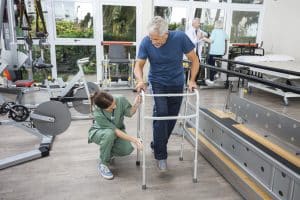Exercise Can Be an Essential Component in Managing Treatment Side Effects for Cancer Patients


Improved Physical Functioning: Regular exercise can help maintain and improve physical strength, endurance, flexibility, and balance, which may be affected by cancer treatments like chemotherapy and radiation.


Enhanced Emotional Well-being: Exercise can boost mood and reduce feelings of anxiety and depression, helping patients cope with the emotional challenges that often accompany a cancer diagnosis and treatment.




Immune System Support: Some studies suggest that moderate exercise may enhance the immune system’s response and aid in the body’s ability to fight cancer and infections.

Treatment Adherence: Regular exercise has been associated with improved treatment adherence in cancer patients, ensuring that they stick to their prescribed treatment plans.

